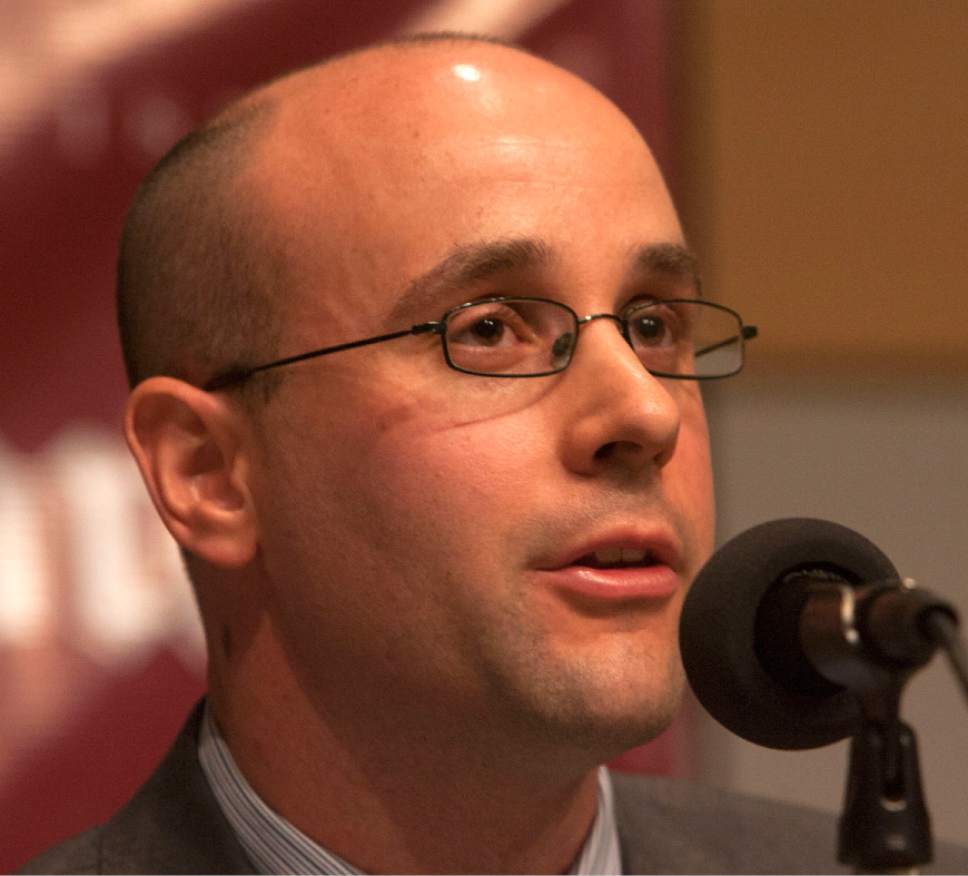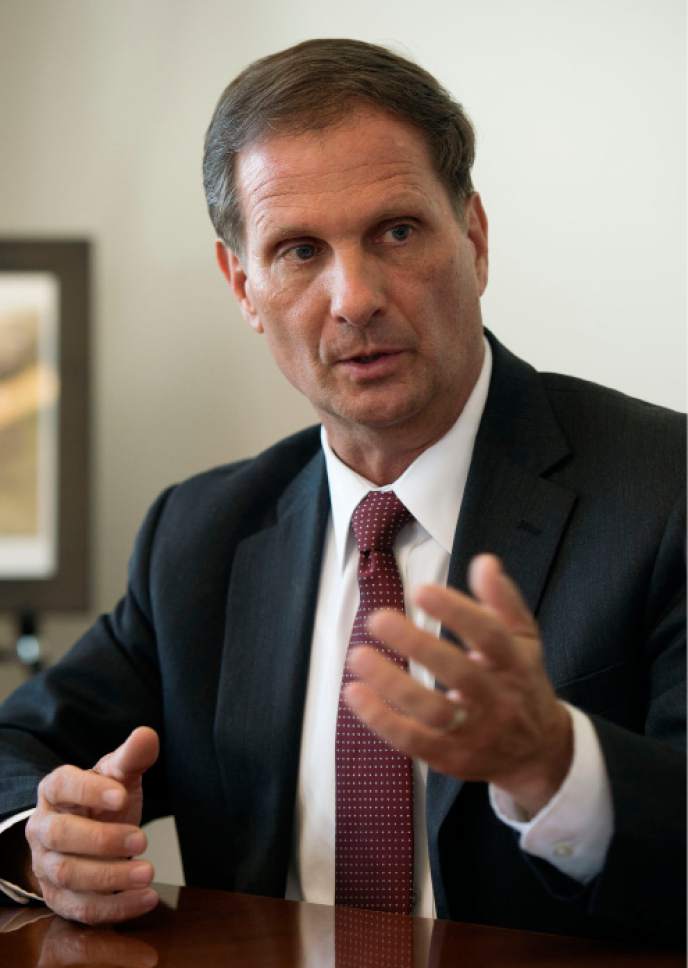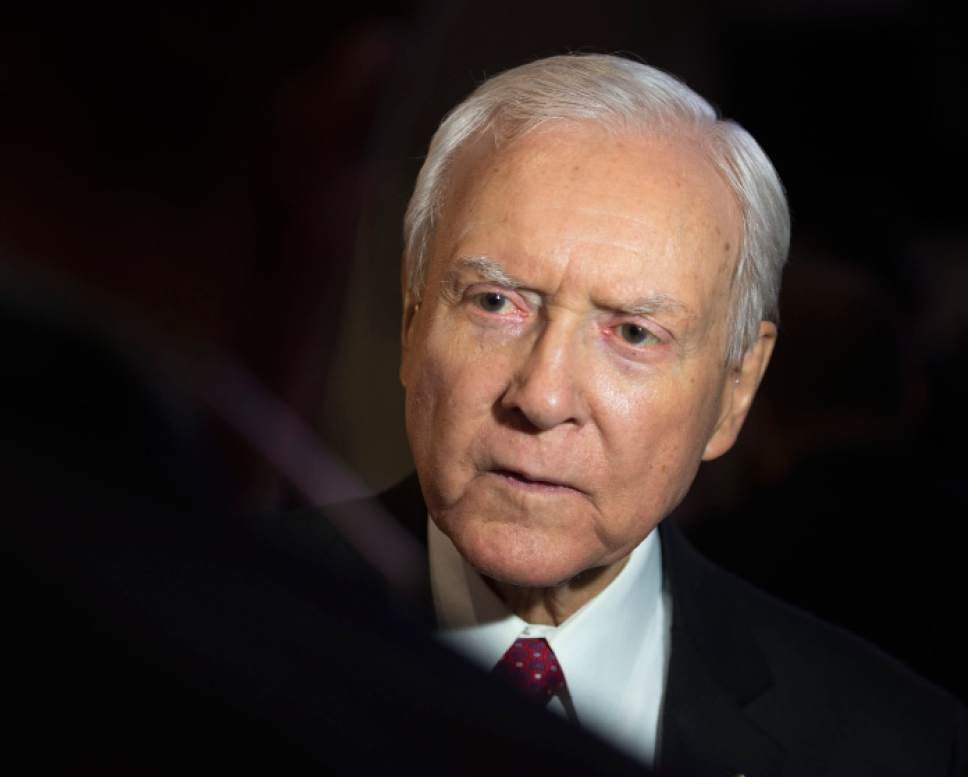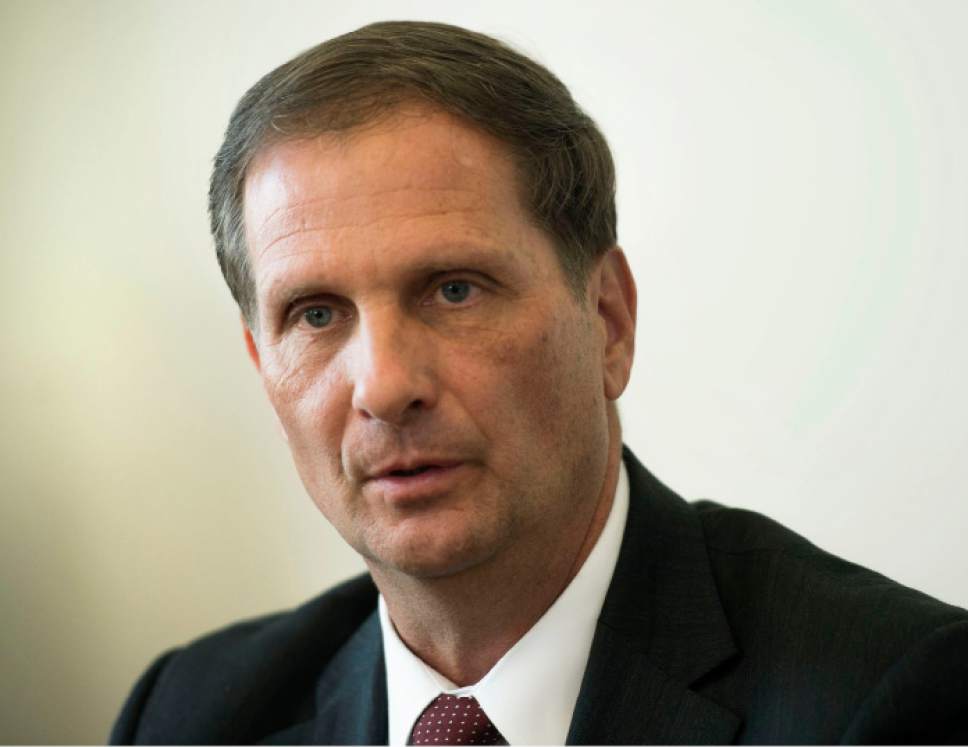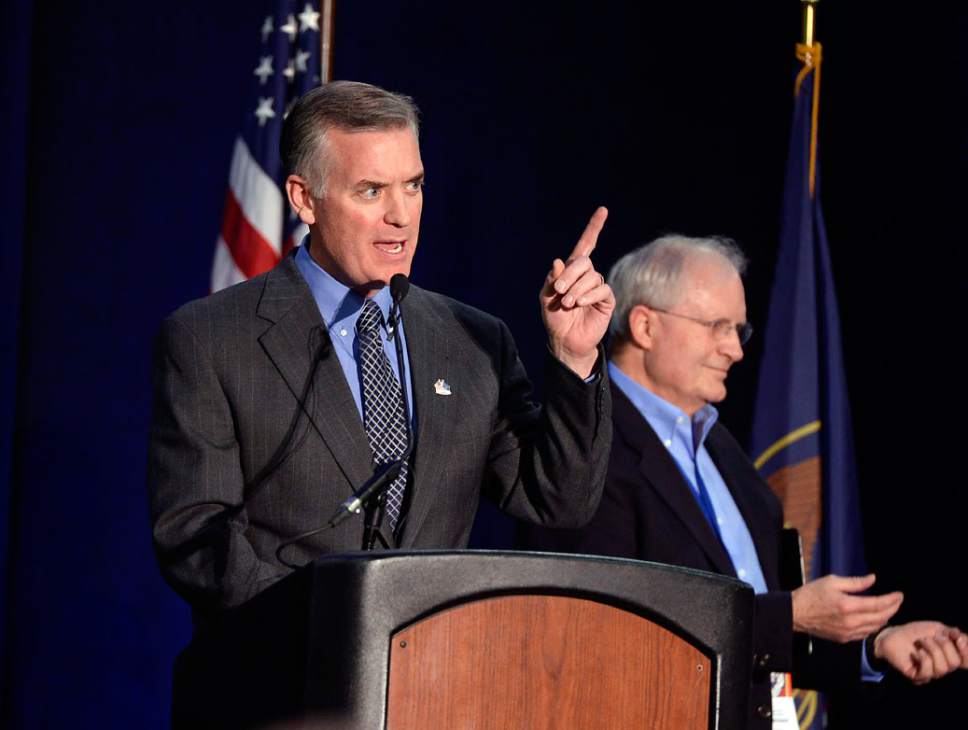This is an archived article that was published on sltrib.com in 2017, and information in the article may be outdated. It is provided only for personal research purposes and may not be reprinted.
Washington • As Republicans begin plans to dismantle the Affordable Care Act, Sen. Orrin Hatch says there will be challenges — and Congress doesn't want to be "reckless" — but that the health care law needs to be revamped before it causes further harm to Americans.
"Unfortunately, it doesn't get better from here, not without a major change to the status quo," Hatch said Thursday on the Senate floor. "In fact, I think it's safe to say that, if we fail to act, the worst is yet to come."
Republicans are mounting a campaign this month to repeal the ACA, also known as Obamacare, and then work to replace it with a different approach. GOP members have embraced some tenets of the law, like allowing young Americans to stay on their parents' insurance until age 26, while denouncing others, such as the mandate that Americans buy health care coverage or face fines.
Hatch and other members of Utah's federal delegation want to jettison Obamacare but have not laid out specifics on what parts they may want to keep or how they will solve the rising cost of health care and the concern that millions of Americans could lose health coverage without President Barack Obama's signature law.
"This process will be more difficult than it sounds," Hatch said. "We don't want to be reckless, and we don't want to inflict more harm on the American people or our health care system."
The senator added that there will need to be a "stable transition period" from Obamacare to the unspecified new law and that he hopes the solution will be a bipartisan venture.
Utah Democratic Party Chairman Peter Corroon echoed Obama in warning of a massive and disastrous disruption in health care if Republicans act precipitously to throw out the ACA.
"We urge the members of our Utah congressional delegation to put the needs and lives of Utahns ahead of their desire to fall in line with their party," Corroon said in a prepared statement. "A repeal of the Affordable Care Act would mean 273,000 Utahns would lose their health coverage in 2019; and that is in addition to the thousands who already lack access to health care due to local GOP leaders' failure to expand Medicaid."
Corroon denounced an outright ACA repeal as "irresponsible, immoral and fiscally unsound," and said Congress should instead work to improve the law.
Jason Stevenson, spokesman for Utah Health Policy Project, a nonprofit that helps residents enroll in coverage, also encourages a fix-it, don't-nix-it approach.
"We can fix it without breaking it," Stevenson said.
He puts the number of Utahns who have health care coverage after the ACA was instituted in 2014 at a much lower number than Corroon — about 110,000.
But many of those are members of groups that previously had been "denied and pushed aside" — including those with pre-existing conditions and people unable to afford insurance.
Rep. Chris Stewart, R-Utah, envisions a phased-in process for replacing Obamacare and favors keeping the under-26 parental insurance provision as well as boosting health care savings accounts and allowing Americans to buy insurance across state lines.
"It's not enough for us to say let's make Obamacare go away," Stewart said this week on MSNBC. "We really do have an obligation to assure people we're not going to take insurance away from people, especially people with pre-existing conditions."
While Republicans may move quickly to repeal Obamacare, the move isn't likely to immediately toss out key parts of the law but rather set a timetable for when they would be phased out. Much of that could occur after the 2018 midterm elections when the GOP could argue that it had repealed Obamacare without having to face political backlash from its removal.
Sen. Mike Lee's office said the GOP senator is not endorsing any specific plan to replace Obamacare but likes the idea of "liberalization of health-savings accounts and flexibility for states to address high-risk pools" of insured people.
Rep. Jason Chaffetz, R-Utah, agrees with keeping parts of the law, such as the under-26 coverage provision and protection of those with pre-existing conditions, but notes the changes don't have to be immediate and can be implemented over time.
However, he said, "putting that in motion can't happen soon enough."
As Chaffetz sees it, there are many compelling solutions being floated but Congress will need time to work on the "terribly complicated" replacement plan.
"The country spoke loud and clear that they want a change, they need relief," Chaffetz said, "and I think Republicans have to deliver on that or they'll be booted out of office as fast as they came into power."
Reps. Rob Bishop and Mia Love's offices did not respond to requests for comment on what changes they would like to see with Obamacare and what parts they want to keep.
Stevenson, of the Utah Health Policy Project, said from the proposals he's seen so far, a plan created by Republicans would likely "be a lot like the Affordable Care Act but it's going to be called something different."
— Courtney Tanner contributed to this report.
Affordable Care Act open enrollment
The deadline for enrolling is Jan. 31. Free assistance is available at takecareutah.org or by calling 211.


